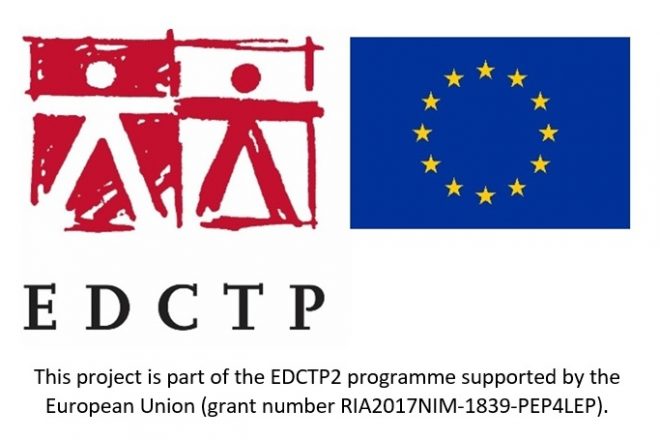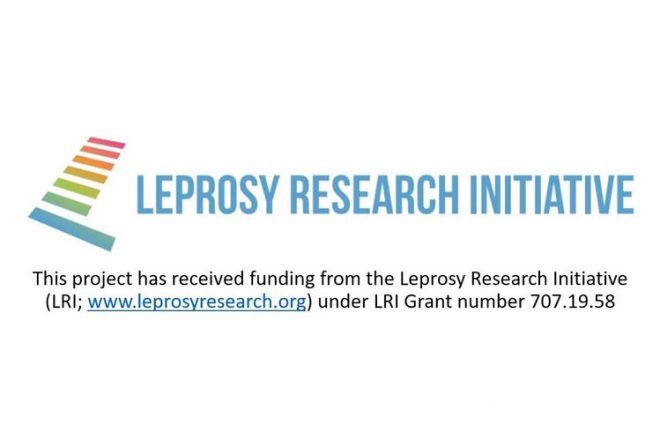Newsletter PEP4LEP – May 2023
Welcome to the bi-annual newsletter of the PEP4LEP research project! In this edition, we are excited to provide updates on our ongoing research activities, as well as to highlight our recent dissemination efforts at various international platforms, including the first World Health Organization (WHO) Global Meeting on Skin Neglected Tropical Diseases (NTDs) and the LRI Spring Meeting. We are delighted to introduce three new team members who will bring valuable contributions to the project. Furthermore, we are happy to announce the launch of two innovative tools that focus on medication supply chain management for NTDs.
Country updates
Data collection is ongoing in Ethiopia, Mozambique, and Tanzania. Health staff are screening household and community contacts of leprosy patients for leprosy and other skin diseases, providing community education, and administering single-dose rifampicin for leprosy prevention (SDR-PEP) to those eligible.
Ethiopia:
In Ethiopia, around 50 skin camps have been conducted, leading to the distribution of almost 4000 SDR-PEP dosages. That means that 4000 community contacts of leprosy patients received protection against developing leprosy themselves! The team in Ethiopia also started data collection on the acceptability of both interventions and did an observation study in the skin camps. More about this is to be read further down.
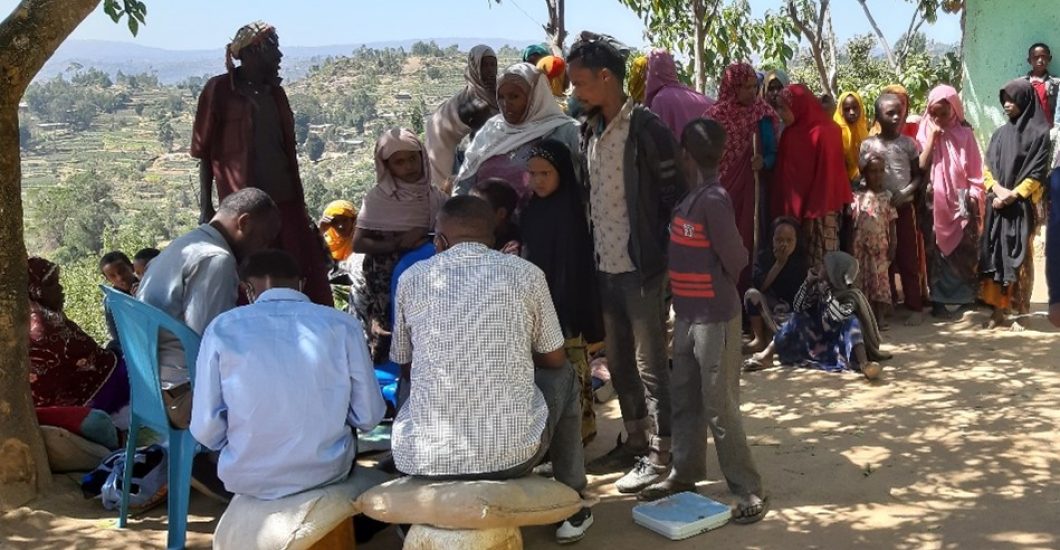
Tanzania:
Tanzania is still leading in the number of skin camps conducted, so far 74 events have been organised and the team continues their efforts. They are already at 75% of the aimed target of 10,000 contacts to receive SDR-PEP. The team has had some challenges with the availability of medication for the various skin conditions, but they managed to redistribute these over the intervention areas which solved the issue for now. Great solution!
Mozambique:
While the team in Mozambique keeps putting great effort in importing SDR-PEP into the country, shipment delays have slowed down the inclusion of contacts, especially in the skin camp intervention. However, they still managed to continue with the health-centre based intervention in which so far 88 contacts have received SDR-PEP. A new research assistant was found, her name is Banú Fumane – she will be introduced below.
Experiences from the PEP4LEP qualitative studies start in Ethiopia
In January 2023, the qualitative PEP4LEP side studies started in Ethiopia. An international team including team members from Ethiopia, Canada and The Netherlands joined three skin camps for data collection, after a qualitative research training was provided to the Ethiopian researchers involved. During the community events, the team gathered quantitative data, undertook observations and held interviews with both community members and health workers. Valuable information was gathered on acceptability, communication, skin camp organization and interprofessional learning. The team’s hard work has already produced an abstract that was presented by Kitesa and Bizuayehu at the WHO skin NTDs meeting (see below).
Read more about the experiences from Ephrem, Bizuayehu, Peter and Anne (under the photo).
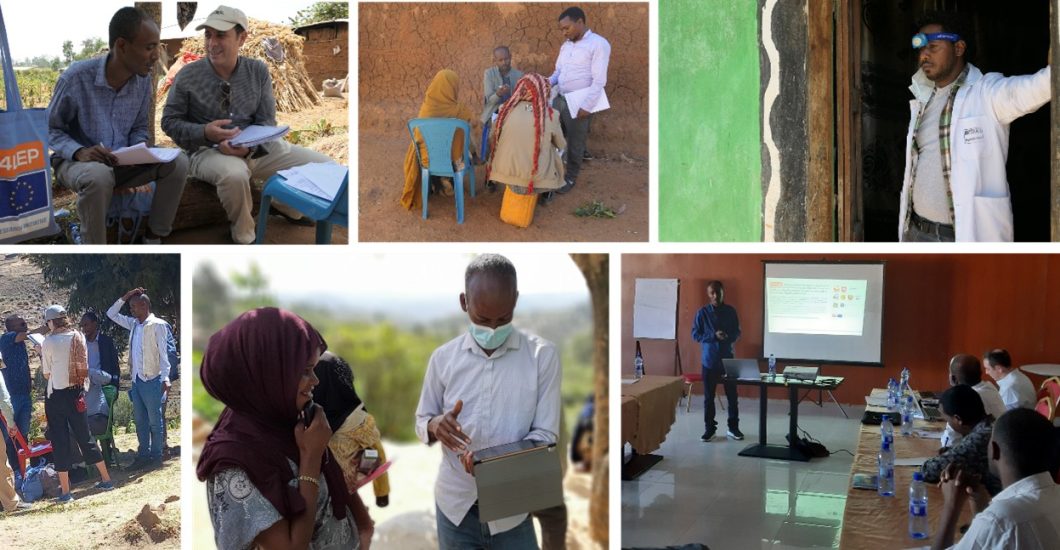
PhD candidate Ephrem Mamo stated: “As a PhD student working on the PEP4LEP project, I took part in developing the materials for the qualitative studies in the Ethiopian skin camps and in the training sessions on qualitative data collection and analysis techniques. I also participated in data collection by conducting focus group discussions and in-depth interviews with health workers, patients & contacts, and by making observations in the skin camps. Through the course of this process, I have gained a lot of experience on qualitative data collection, transcription, translation, coding, and thematic analysis. Finally, I would like to express my great thanks to the international consortium for the unreserved support over the entire the study time.”
Bizuayehu Belete, the tropical dermatology professional specialist who participated in over 40 skin camps in Ethiopia on his experiences: “Both observations and interviews were conducted in the skin camps. The community and health workers were directly involved, sharing insights on giving community health education, skin screening for leprosy patients’ contacts as well as SDR-PEP administration and treating common skin diseases with free topical medication. One of the aims was to understand how health workers at different levels learn from each other to help the community in need, and to find out how this could be further improved. I provided health worker training, shared my knowledge and skills regarding dermatology, and raised awareness amongst the community contacts about the purpose of the PEPLEP study.”
Dr. Peter Nugus, a medical sociologist from McGill University, Canada on the PEP4LEP qualitative side-studies start: “The qualitative research training, conducted over two days in Ethiopia, was a great success and the engagement of the participants in the Ethiopian team was greatly appreciated. It was an honour and a privilege to be able to share knowledge about research skills in Ethiopia. The research itself went extremely well, and was a great mutual learning experience. We collected quantitative data, and undertook observations and interviews. The data are of excellent quality. We learned valuable lessons about acceptability, communication, skin camp organization, as well as how to enhance interprofessional learning among health professionals and communities. Best practices can be transferred to other countries, communities and projects. I look forward to opportunities to share this knowledge, and also for us as a team, to undertake this qualitative research in the other PEP4LEP countries.”
Dr. Anne Schoenmakers from NLR IO: “Initiating the qualitative PEP4LEP studies in Ethiopia was a wonderful experience! Working as a team, we gained insights from one another and gathered valuable information from health workers, patients, community members, and policymakers. This data will aid in improving interventions for leprosy and skin diseases in underserved communities in the future. Our gratitude goes out to all who supported us throughout this process.”
Kitesa presented at the LRI Spring Meeting 2023
Kitesa Debelo, the PEP4LEP project manager from GLRA Ethiopia, did a wonderful job representing the PEP4LEP consortium at the LRI Spring Meeting in Breukelen, the Netherlands, at 21 April 2023, he presented the preliminary findings of PEP4LEP.
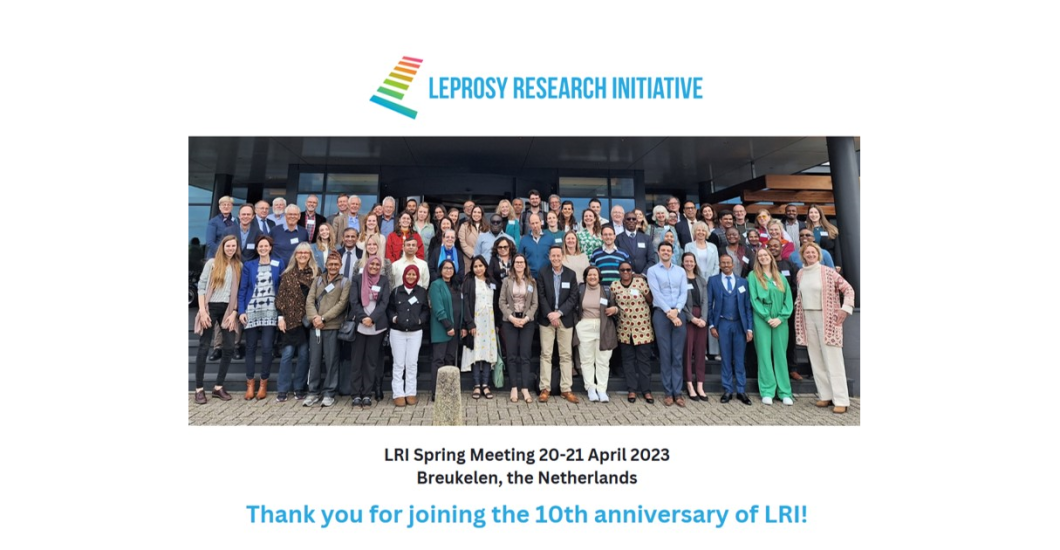
Kitesa was very excited about joining the meeting: “The LRI Spring Meeting was a great opportunity to get to know many researchers and organizations working in the area of leprosy. Though there may be differences in the context and magnitude of problems in each country, our globe is facing many challenges that are common in leprosy control. It was therefore a good opportunity to hear about experiences and innovations of different countries in leprosy research at the LRI Spring Meeting. The meeting was well organized in all aspects. I enjoyed it very much and learned a lot. If we collaborate, we can put an end to the suffering caused by leprosy, especially in the most marginalized communities. Finally, I would like to thank the organizers of the LRI Spring Meeting. My deepest gratitude also goes to all representatives of the projects who attended and presented during the meeting.”
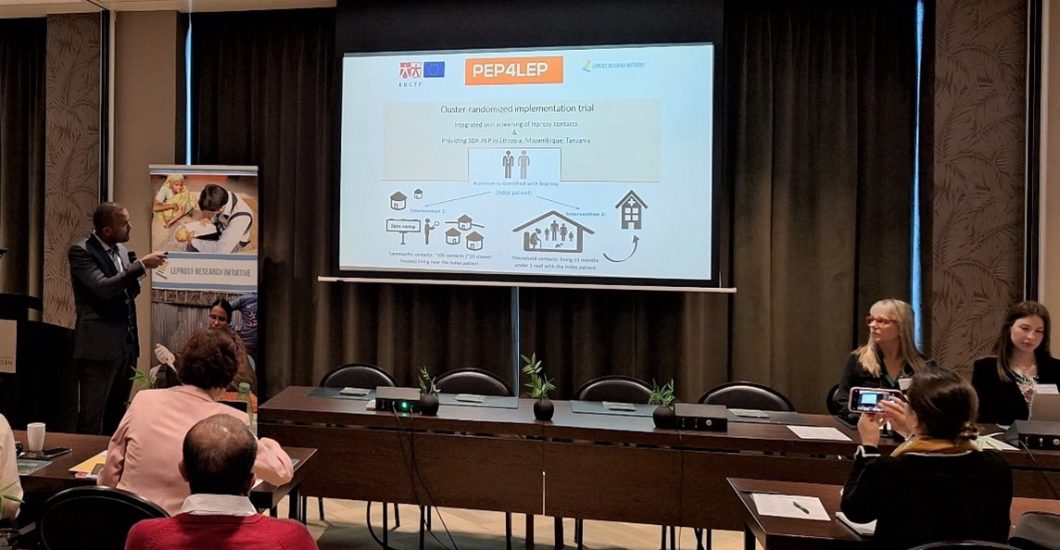
A representative from one of PEP4LEP’s funders EDCTP, dr. Michelle Helinski, also joined the LRI Spring Meeting. Another highlight of the meeting was that prof. Epco Hasker from the Institute of Tropical Medicine in Antwerp, Belgium presented the final results of the PEOPLE project. The PEOPLE project is PEP4LEP’s ‘sister-project’, which was also funded by EDCTP and LRI. They tested four methods of preventive leprosy treatment (including a double dose of rifampicin), to stop disease transmission at the Comoros and Madagascar.
Dr. Suzan Trienekens, Coordinator of LRI, said: “It has been a pleasure to see Kitesa and Epco present the progress and results of the PEP4LEP and PEOPLE projects during our annual Spring Meeting. Their interesting presentations, engaging discussions and inspiring motivation to share their research on PEP and its implementation have been a great contribution to the event. We are proud to also fund these projects and are grateful to all those involved for their work.”
You can find reflections on the LRI Spring Meeting on the LRI website. There, you can also sign up for the online ‘Highlights of LRI Spring Meeting’ on the 1st of June. This event is open to everyone with an interest in leprosy research and participating is free-of-charge.
PEP4LEP skin camps presented at the first WHO Global Meeting on Skin NTDs
From 27 to 31 March 2023, the first WHO Global Meeting on Skin Neglected Tropical Diseases was held in Geneva, Switzerland. There were three contributions from the PEP4LEP consortium: a poster from the team in Mozambique on the high number of scabies patients detected in skin camps, an online presentation from the Ethiopian team on ‘on-the-job’ health worker coaching in skin camps, and a general PEP4LEP skin camp presentation from NLR. It was an amazing opportunity to share lessons learned from PEP4LEP and also to gain insights from other organizations working in the skin NTD sector. The WHO Director-General dr. Tedros Adhanom Ghebreyesus gave an inspiring speech during this meeting, stating: “Count me in as one of you, my experience started with NTDs … It is time to ACT NOW!” More information on the meeting, as well as the recorded sessions, are available via the WHO website.
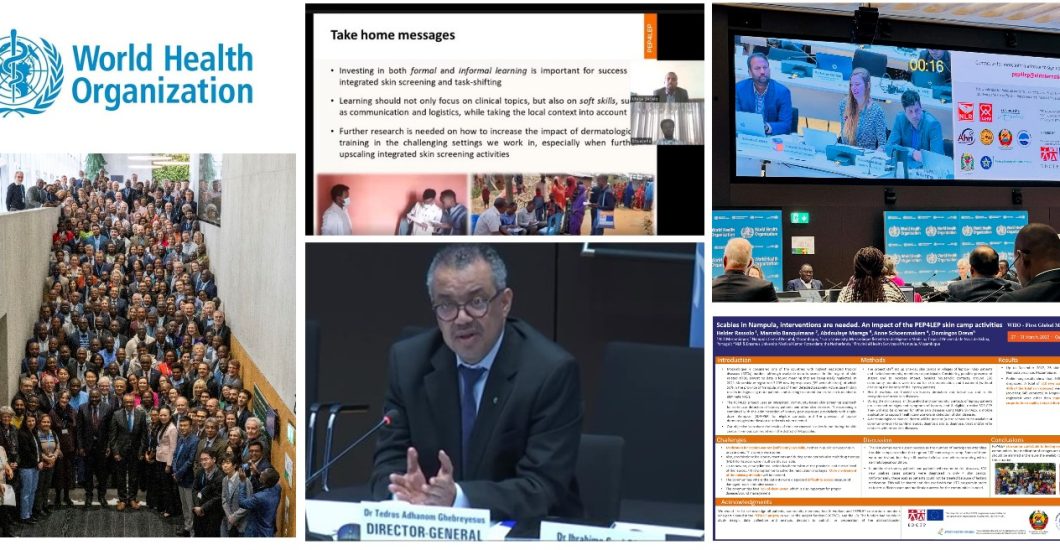
New PEP4LEP faces
Two junior female researchers joined the PEP4LEP team! In addition, a senior researcher from McGill University is providing support in the PEP4LEP qualitative side-studies. A warm welcome to Banú, Marente & Peter!
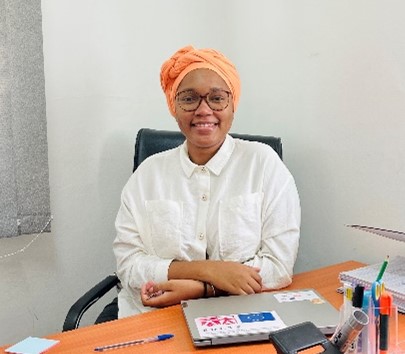
Banú Fumane
Banú Fumane is a dentist and postgraduate in public health. She recently started as the new PEP4LEP research assistant in the NLR Mozambique office in Nampula. She dreams about communities without stigma, where everyone has a chance to contribute to society. Her moto in life is: ‘TEACH, LEARN and HELP’.
“As a dentist and postgraduate in public health, I am a professional with experience in the management and implementation of health projects, scientific research, monitoring and evaluation and data management. I am passionate about public and community health. I live by the motto: ‘TEACH, LEARN and HELP’, and this will meet the values and beliefs of NLR and specifically the PEP4LEP project. To be part of a project that works with neglected diseases in populations in need, and to be able to carry out a research project that will not only potentially change their lives today, but will also help future generations. To have the opportunity to use my knowledge to change their situation is filling me with joy and pride. I dream of healthy communities, without stigma and disabilities, places where knowledge and power are equally divided, and where everyone plays a role in the development of society. I believe that with this project, our team will be able to take a big step towards this future.”
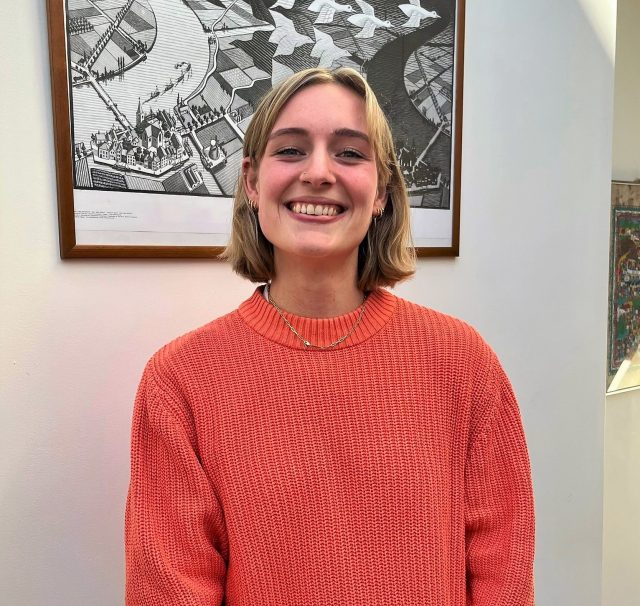
Marente Mol
Marente Mol is the new Research Support Officer at NLR IO in Amsterdam, the Netherlands. She has a background in International Public Health with experience working on research projects on stigma and mental health in NTDs. She is excited to work with and learn from the international PEP4LEP team.
“I am very pleased to join the PEP4LEP project team in a supporting role. I have been working at NLR since September 2022, and have a background in International Public Health with experience working on research projects on stigma and mental health in neglected tropical diseases. It is great to join the team in this exciting time during which a lot of progress is being made. I am curious to learn more about the operational and research aspects of the project, as well as the challenges that are being faced in the three implementing countries. I am very eager to work with and learn from an international team so dedicated and motivated to achieve their goals. Glad to be contributing to this promising project, thank you!”
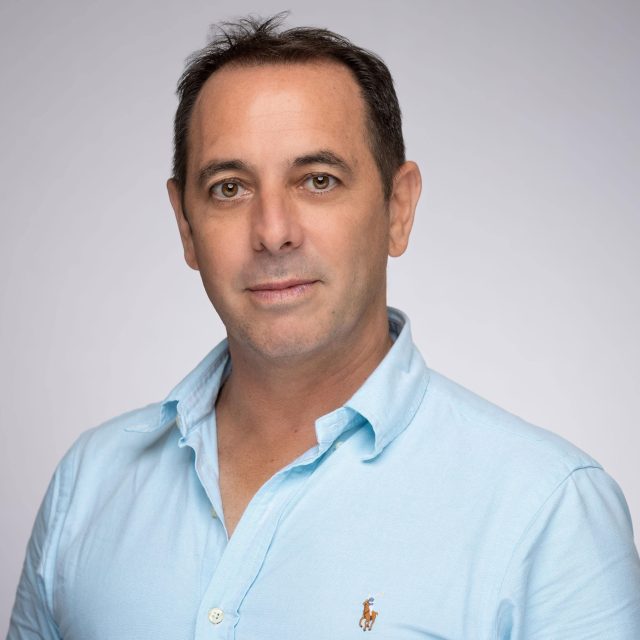
Dr. Peter Nugus
Dr. Peter Nugus is a medical sociologist and Associate Professor and Associate Director Graduate Programmes in the Institute of Health Sciences Education at McGill University, in Montreal, Canada. He is honoured to make a contribution to the PEP4LEP project.
“I teach qualitative and mixed-methods research and research programme evaluation, the policy-practice interface, work-based learning, and the organization, collaboration and coordination of health care. My research spans seven countries, and I am especially passionate about teaching research skills and strengthening capacity in low and middle income countries. I have worked interdisciplinary on infectious diseases, such as HPV and COVID-19, in underserved or segregated communities. I’m honoured to be part of PEP4LEP. It was great working together with wonderful colleagues in Ethiopia, including Ephrem, Bizuayehu, Kitesa, Kedir, Tamirat and Anne, who tolerated my naïve questions and ‘field interviews’ in the car to and from skin camp sites with endless good humour. Thank you!”
Rifampicin shortages
We are happy to announce that the newly purchased rifampicin batches have arrived in Ethiopia. Unfortunately, multidrug therapy (MDT) and rifampicin shortages are still a problem in Mozambique. The PEP4LEP consortium is working hard trying to solve this problem. They are in contact with various producers and are lobbying at national and international level for a sustainable solution for this problem. To improve the supply chain management for NTDs, two new tools are now also available for people working in the field of leprosy: NTDeliver.com & the WHO NTDs Supply Chain App! Find out more below.
Other announcements from the leprosy working field
- Great news! Leprosy and MDT are now included in the open-access NTDeliver.com platform. NTDeliver centralizes and coordinates information from various sources to improve the NTD supply chain. It works like a purchase order track & trace system. You can gain insights per country on MDT quantities ordered and its location (e.g. being shipped, stocked in a warehouse). The platform also provides tools for planning & forecasting new orders.
- The WHO developed the WHO NTDs Supply Chain App. The intention is to help health workers improving their skills in handling, delivering and managing NTD medication and diagnostics. Topics included are: forecasting, supply planning and procurement, reporting from primary health care units to national levels, and quality control. The app complements presentations, standard operating procedures for supply chain management and online training courses from OpenWHO. You can download the app by clicking on one of these links: Android phones users & iPhone users.
- The ILEP Lift Leprosy Learning project has been launched and is developing an online depository of modernized e-learning materials. If you have interesting materials to share, or wish to see whether it can be developed in an e-learning or blended learning course, please contact Fenenga@nlrinternational.org. You can also share your practical materials with Infolep and InfoNTD via info@infontd.org or info@infolep.org.
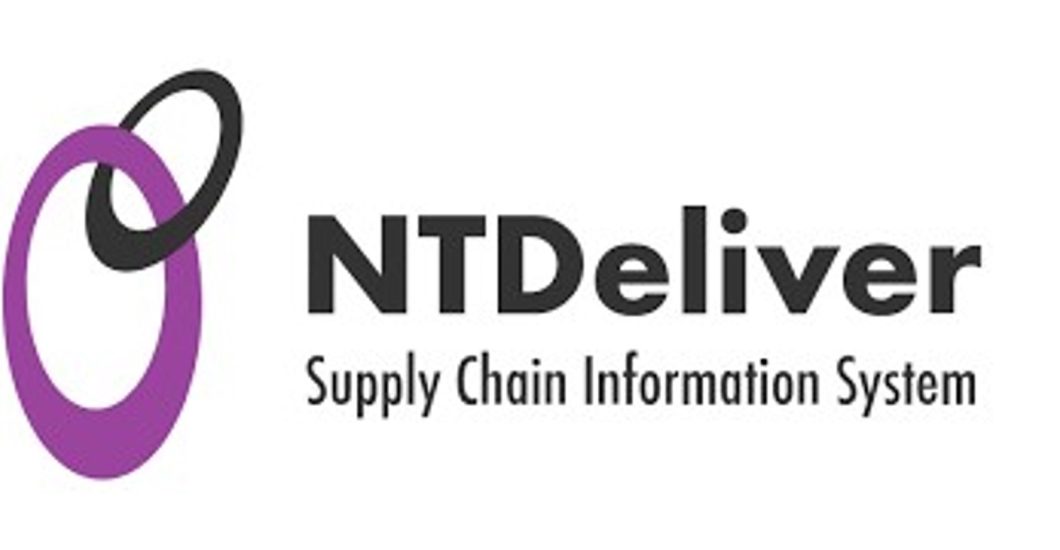
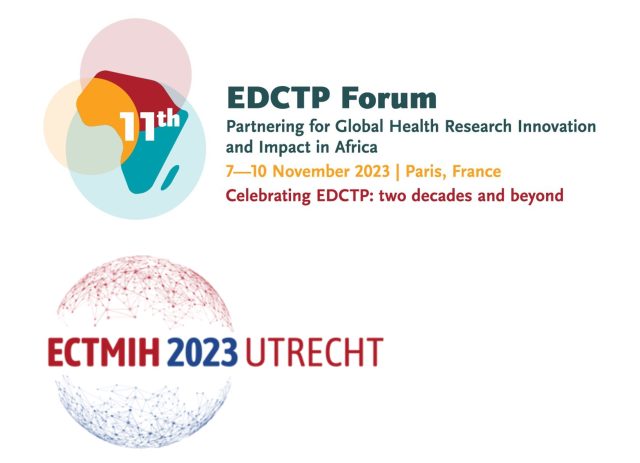
-
Looking forward to…
- The EDCTP Forum is planned for 7-10 November 2023 in Paris, France. It will be held in a hybrid way, with the possibility to attend the full programme in Paris and with a selection of sessions available online. The abstract deadline has been postponed until 17 May 2023, 17:00 CEST.
- ECTMIH (European Congress on Tropical Medicine and International Health) will take place in Utrecht, the Netherlands from 20-23 November 2023. Early Bird (discounted) ticket purchase options are available until 01 June 2023, LMIC discounts are available. The abstract deadline has been extended and is now 22 May 2023, 23:59 CEST. https://www.ectmih2023.nl
